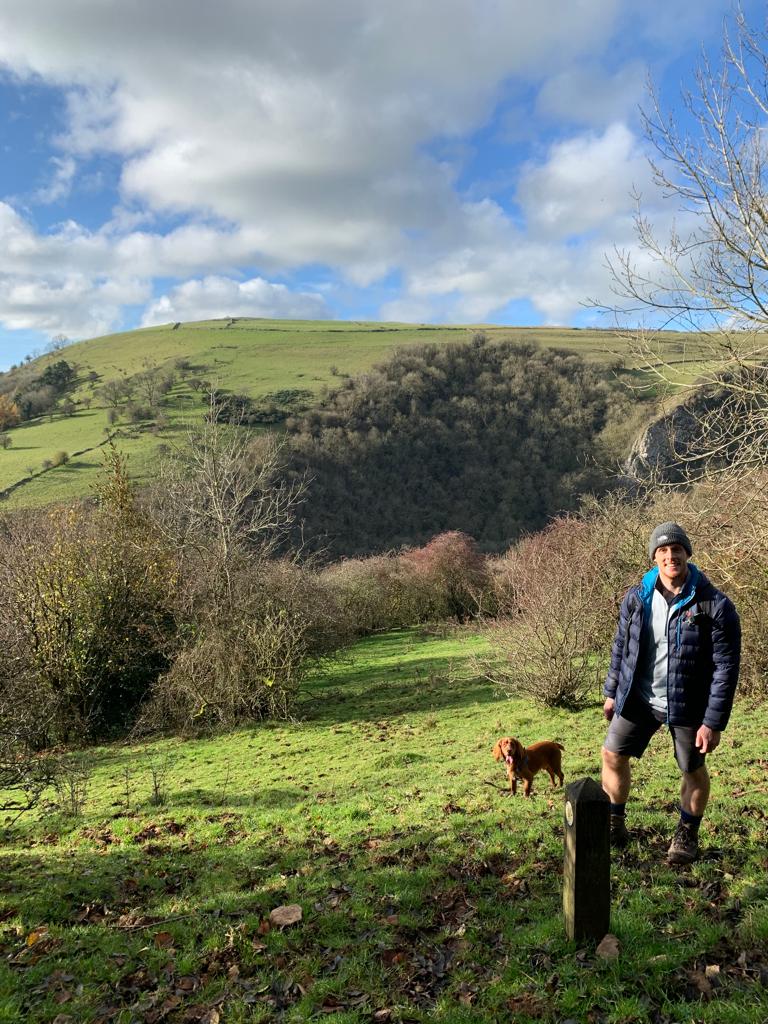Interview with Tiny Eco Home Life x The Eco News
159
Tell us about you..
I’m Ben and I’m the creator of Tiny Eco Home Life. It’s a website all about inspiring people to live a more sustainable life. Through the site, I’m committed to sharing genuine, helpful and reliable information in the form of articles and guides across all major areas of your home life.
Armed with this information, you can then start to make swaps, switches and habit changes to achieve maximum positive impact for you.
Alongside running the site, I’m a full-time freelance writer from my home in Salford. Articles, blog posts, web pages, email campaigns, guides, e-books, video scripts…you name it, I’ve probably written it.
When I’m not at my laptop, you’ll find me outdoors, walking my energetic cocker spaniel Murphy, at the gym, having a coffee (several) or being a dad to my two year old son.


How did you become a freelance writer?
My writing career started just after I graduated from the University of Sheffield back with a Biology degree in 2010. I ventured over to south-west Spain for a stint of living and teaching a bit of English. On my return I wanted to keep in touch with Spanish culture as best as I could, so I started volunteering to write for a couple of Spanish football websites. Once I got the bug, I decided to start my own website.
I eventually found myself in a digital marketing role (mainly thanks to experience of writing on the side) and for the first time in five years, I was actually paid to write. After a number of years in digital marketing and still writing on the side (but this time mostly paid), I decided it was time to take the leap into self-employment.

What made you join us and others on a sustainable journey?
Despite growing up in an industrialised city, I was always attracted to nature and the outdoors as a youngster. One of my favourite parts of the year was our annual family trip to Chester Zoo. I loved it. I’ve since learned that zoos have their pros and cons from an ethical and sustainable perspective.
But if it wasn’t for zoos, I don’t think I would have developed a love for animals. It led me to a period of work experience at my local Animals in Distress sanctuary and to volunteering for Lancashire Wildlife Trust. If this wouldn’t have happened, it’s unlikely that I would go on to study Animal and Plant Science at University, which is where my journey with the environment and sustainability really started. Without that, I wouldn’t have started my website.
What is your favourite advice to offer?
The best place, and perhaps the only place, to start is with the things we can control in our own homes and everyday lives.
If I was to ask you, “What do you think the biggest source of carbon emissions is for retail giant Amazon?” You might say transport.
What about Google or Netflix? Server power, perhaps?
No, the biggest source of emissions is their finances. It’s where they hold their cash.
You or I might not be a tech giant, but who we bank with can have a major impact on our green living credentials. That’s because most banks, savings accounts and pension providers invest money into businesses and projects that support the fossil fuel industry, deforestation, factory farming and other unethical endeavours.
According to the latest Banking on Climate Chaos report, big banks across the world have provided $5.5 trillion (yes, trillion) to fossil fuel companies since the 2015 Paris Climate Change Agreement. In the UK, the worst culprits are Barclays, HSBC, NatWest, Lloyds and Santander who together have provided £100s of billions of financing to fossil-fuel based businesses.
So, switching to a bank that strives to be sustainable with its investments is a simple, yet immensely impactful way to create change. Switching to a more ethical bank means your money is not being used to fund or support environmentally harmful activities.


What is your best sustainable decision so far?
Starting Tiny Eco Home Life has to be one of my best sustainable decisions. Purely because of the number of people it’s had a positive impact on. It’s been incredibly rewarding to share knowledge with others and be there to support people when they decide to embrace more sustainable living practices.
As a normal person living in a city, I’m not striving for perfection. Instead, I’m focused on making improvements and taking small, sustainable steps in my own life. Researching and writing about sustainability has been a fantastic way to discover new ideas that I can put into action myself.
Some people argue that individual actions don’t matter and won’t make a significant difference for the environment. I strongly disagree.
I believe that starting with easy changes, such as switching to a green energy provider, choosing a more ethical bank as discussed above, reducing food waste, carrying a refillable water bottle, can create a ripple effect. Once you’ve made a few simple changes, you’ll gain momentum to evolve other areas of your life in a positive way. I’ve even written a guide featuring 100 ways to be more sustainable at home, which you can download on Tiny Eco.
My motto is to keep things ‘simple and sustainable’, focussing on small, manageable changes that can create a lasting, positive impact on the environment. It’s not lost on me that just 57 companies are linked with 80% of greenhouse gas emissions since 2016, but I think that change won’t happen with the pressure, influence and will of the people.
Checkout Bens free guide on 100 ways to live a more sustainable life!




